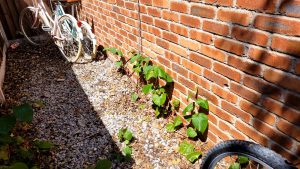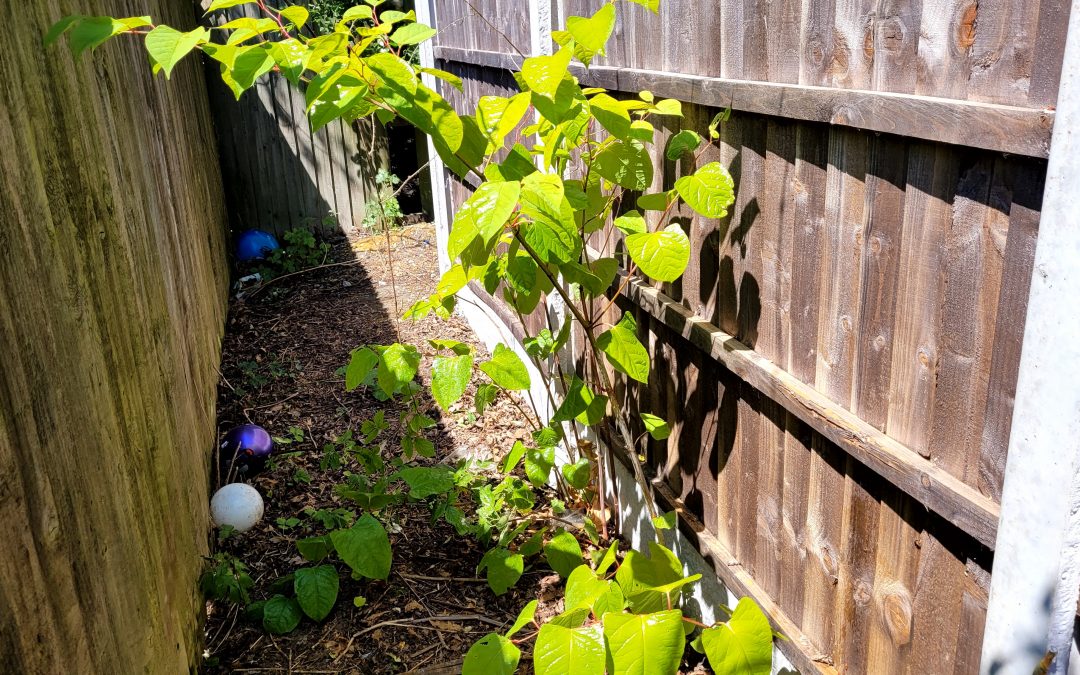What is the 3-meter rule regarding Japanese knotweed?
The 3-meter rule regarding Japanese knotweed is a guideline used in the UK by mortgage lenders and surveyors when assessing properties that may be affected by Japanese knotweed. It refers to the distance within which the presence of Japanese knotweed within a property’s vicinity can potentially impact the property’s value and pose a risk to buildings and structures.
According to this rule, if Japanese knotweed is found within 3 meters (approximately 10 feet) of a habitable space, conservatory, or any structure with a solid foundation (e.g., buildings, sheds, garages), it is considered a potential risk. The reason for this is that Japanese knotweed’s extensive underground rhizome system can cause damage to buildings and other structures, leading to significant costs for eradication and remediation.
When Japanese knotweed is identified within this 3-meter zone, it may raise concerns for potential buyers, lenders, and insurers. In some cases, mortgage lenders may require a professional survey and management plan to address the issue before approving a loan on a property affected by Japanese knotweed.
It’s important to note that the 3-meter rule is not a legal requirement, but rather a guideline used by industry professionals to assess the risk posed by Japanese knotweed on a property. If you are buying or selling a property with Japanese knotweed within 3 meters of structures, it’s advisable to seek advice from a qualified surveyor or a specialist in invasive species management to understand the implications and potential remedies.
If the Japanese is up to my property boundary ?

What is the 3-meter rule regarding Japanese knotweed?
If Japanese knotweed is growing up to your property boundary or within your property, it is essential to address the situation promptly to prevent its spread and potential damage. Here are some steps you should consider:
- Identification: Ensure that the plant in question is, indeed, Japanese knotweed. Sometimes, other plants may be mistaken for Japanese knotweed, so it’s crucial to correctly identify the species.
- Seek professional advice: Contact a qualified surveyor or an invasive species specialist to assess the extent of the Japanese knotweed infestation and its potential impact on your property. They can provide expert advice on the best course of action.
- Legal obligations: In the UK, it is an offense under the Wildlife and Countryside Act 1981 to cause Japanese knotweed to spread in the wild intentionally. If Japanese knotweed is present on your property, you have a legal obligation to prevent its spread to neighboring properties or natural areas.
- Control and management: If the Japanese knotweed is within your property, consider engaging a professional invasive species control company to develop a management plan. Eradication is often challenging, and the goal may be to control the growth and prevent further spread.
- Avoid DIY attempts: Japanese knotweed is resilient, and attempting to remove it yourself can lead to further spread. Cutting, digging, or improperly disposing of the plant can exacerbate the problem.
- Notify neighbors: If Japanese knotweed is encroaching onto neighboring properties, it is considerate to inform your neighbors about the issue. Collaborating with them on control efforts can help prevent the plant’s spread in the community.
- Disclosure: If you plan to sell your property, you must disclose the presence of Japanese knotweed to potential buyers. Failure to disclose this information could lead to legal issues later.
Dealing with Japanese knotweed can be complex, and its removal requires expertise and careful management to prevent its regrowth and spread. Seek advice from professionals who specialize in invasive species control to ensure the most effective and responsible approach to managing the problem.
How do i disclose to buyers?
Disclosing the presence of Japanese knotweed to potential buyers is essential to be transparent and compliant with legal requirements. Here are some steps you can take to properly disclose the information:
- Gather information: Before listing your property, ensure you have accurate and detailed information about the Japanese knotweed infestation. This may include documentation from previous surveys, reports from invasive species specialists, and any control or management plans that have been implemented.
- Inform your estate agent: If you are using an estate agent to sell your property, make sure they are aware of the Japanese knotweed issue. Provide them with all relevant information and documentation so they can properly inform potential buyers.
- Include the information in property particulars: Ensure that the presence of Japanese knotweed is clearly mentioned in your property particulars and listing description. This can help potential buyers understand the situation before arranging viewings.
- Answer questions honestly: If potential buyers have questions or concerns about the Japanese knotweed, be open and honest in your responses. Provide them with all the available information and any steps you have taken to manage the issue.
- Provide a management plan: If you have engaged professionals to control or manage the Japanese knotweed, consider providing the potential buyers with details of the management plan. This can show that you are taking the matter seriously and addressing it responsibly.
- Legal forms and questionnaires: In the UK, there are specific legal forms and questionnaires, such as the TA6 form (Seller’s Property Information Form), that include questions about Japanese knotweed. Ensure that you complete these forms accurately and truthfully.
- Seek legal advice: If you are uncertain about how to disclose the Japanese knotweed presence properly, consider seeking legal advice. A solicitor experienced in property transactions can guide you through the process and help you meet your legal obligations.
Remember, failing to disclose the presence of Japanese knotweed could lead to legal issues and disputes with buyers after the sale. Being upfront and transparent about the issue is the best approach to ensure a smooth and ethical property transaction.
